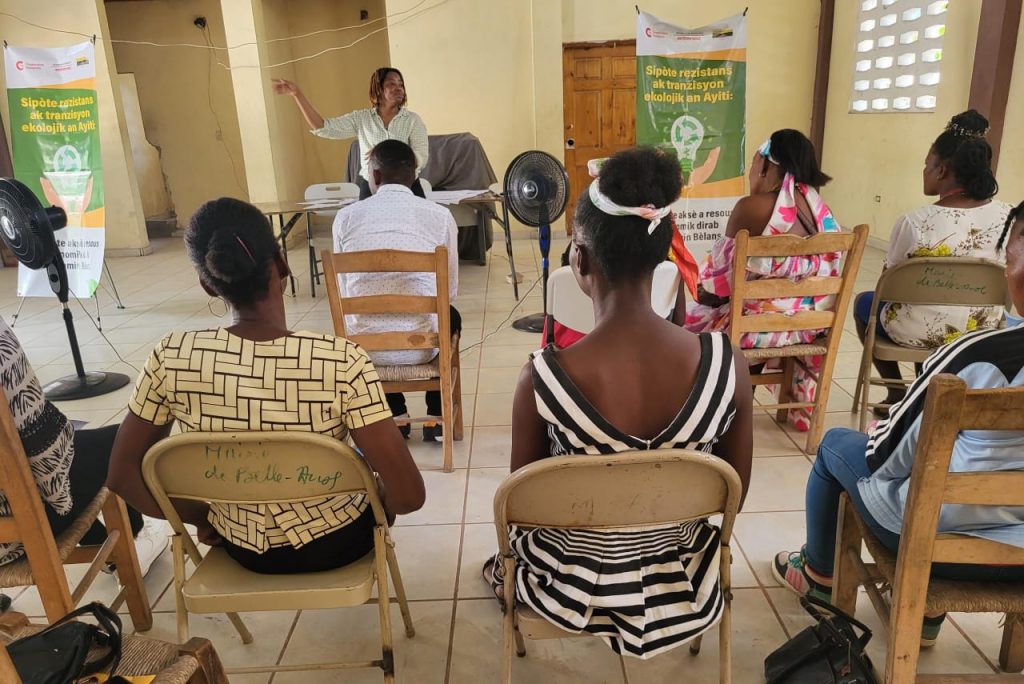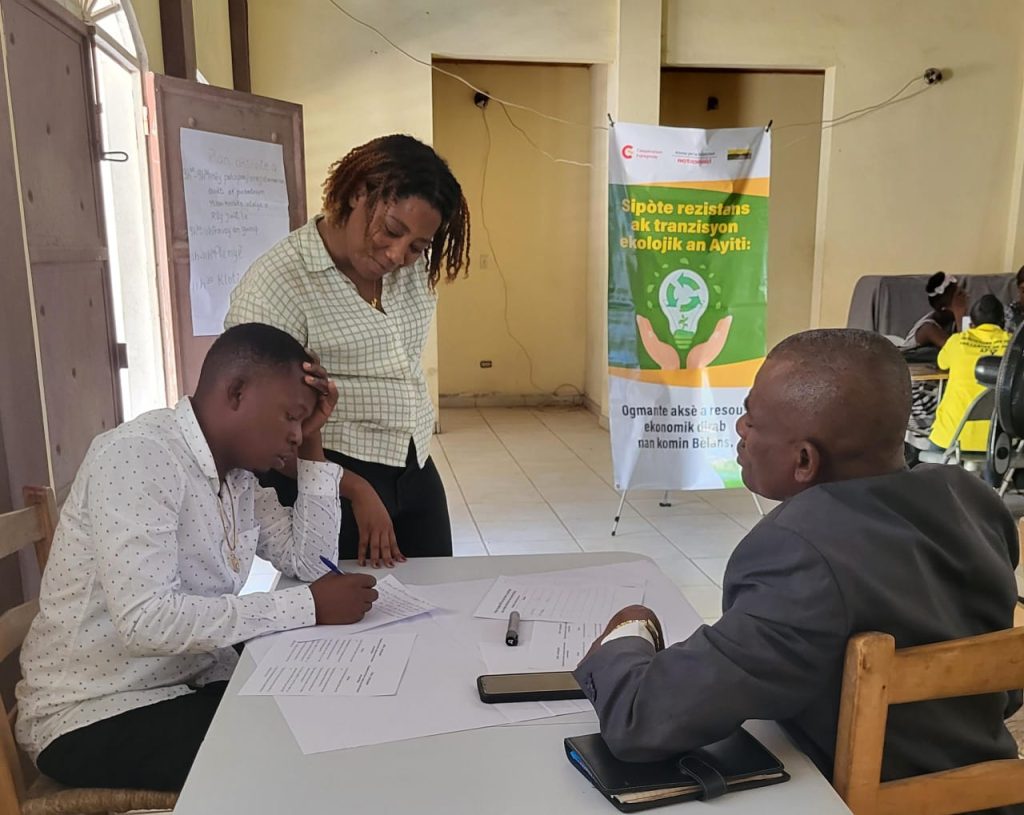 Wadley B. Michel is a project technician at the Unité d’Études et de Programmation of the Ministry of the Environment in Haiti. Her role is to contribute to the design, planning and implementation of environmental projects, ensuring that gender aspects and environmental impacts are effectively taken into account.
Wadley B. Michel is a project technician at the Unité d’Études et de Programmation of the Ministry of the Environment in Haiti. Her role is to contribute to the design, planning and implementation of environmental projects, ensuring that gender aspects and environmental impacts are effectively taken into account.
Enrolling on the Gender and Environment course has enabled me to deepen my knowledge in these crucial areas and convinced me that understanding the link between gender and the environment is essential for designing effective and inclusive projects. The platform offers a valuable opportunity to acquire in-depth knowledge and practical tools for tackling these complex challenges holistically.
In March 2023, as a project technician at the Unité d’Études et de Programmation of the Ministry of the Environment in Haiti, Wadley took part in a training course on climate change financing and budgeting, organized by the Ministry’s Climate Change Directorate. This opportunity arose at a time when her Director was considering giving her new responsibilities focusing on the integration of gender and environmental impacts into sectoral projects and interventions. This prospect excited her, especially as she already had training in Environmental Assessment of Development Policies and Projects.
The training offered by the UN CC:Learn platform took Wadley by surprise, highlighting the close link between financing issues and climate change. It opened her eyes to an often overlooked dimension of environmental challenges: the differentiated impact of climate change on different segments of society, particularly according to gender. She realized that, to tackle these challenges effectively, it is essential to take into account the social, economic and cultural dimensions that influence the perception and reaction of individuals and communities to climate change.
Equipped with my new knowledge and my certificate, I was able to take on my new professional responsibilities with confidence.

Workshop on women’s participation in Belle-Anse community structures
At the same time, Wadley also had the opportunity to reflect on her role as an agent of change in her community. She realized that even the smallest individual actions can have a significant impact when they are part of a collective movement for sustainability. In Haiti, where the consequences of climate change are still being felt and the issue of gender equality is still emerging, she feels fortunate to be able to support these two major struggles for her community. She feels she has found her calling.
As a consultant, she carried out a gender diagnosis on women’s participation in community structures in Belle-Anse for Alianza, a non-governmental organization, as part of their project “Strengthening community resilience and ecological transition” (2023-2026), funded by the Spanish Agency for International Development Cooperation (AECID). Since then, she has continued to seek out training opportunities in gender and climate change, as these are two great causes close to her heart.
I have also created an educational platform “GenderEquiTalk” which was born out of my desire to share my knowledge and raise awareness among the Haitian public of the problems and solutions linked to gender equality so that we can build a more just and equitable society, because even the most modest individual actions can have a significant impact when they are part of a collective movement in favor of sustainability.
Start your learning journey:
Join Wadley and hundreds of students and start learning today:
*The opinions expressed in this article are those of the author alone and do not necessarily reflect the official policies or positions of the United Nations or any of its affiliated organizations.

